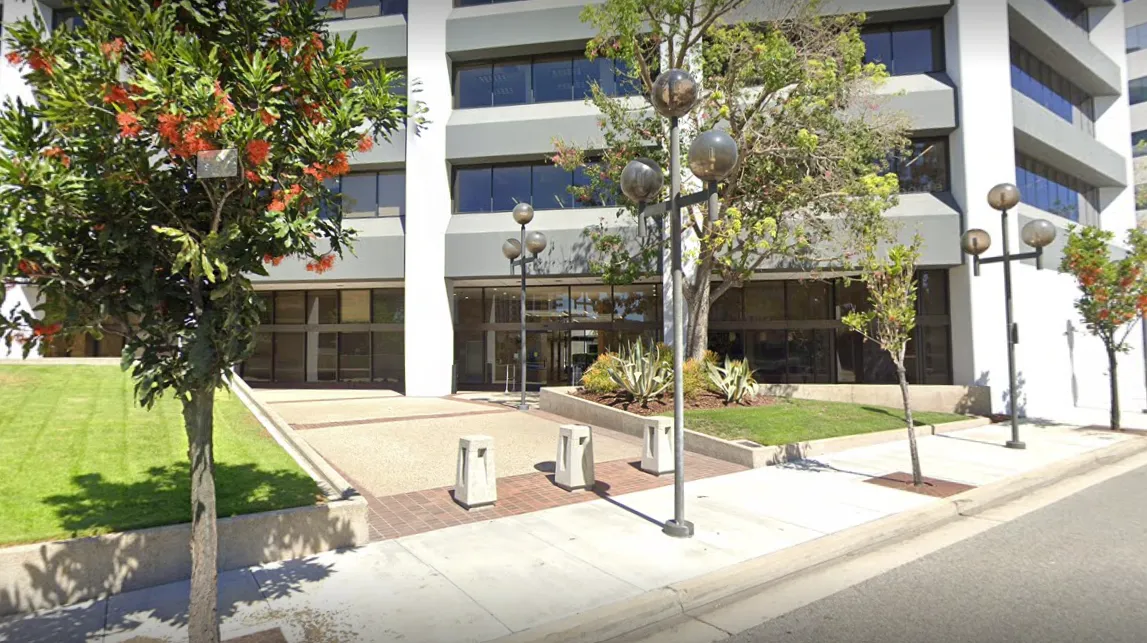Binge eating disorder treatment focuses on breaking cycles of compulsive overeating while addressing emotional pain and stress. Therapy explores underlying triggers, builds emotional resilience, and promotes healthy habits. Nutritional counseling and support groups empower individuals to achieve balance and long-term recovery.
Ads
More Info
Advertisement Disclosure
Our website is funded by advertisers who pay for prominently labeled placements.
Read More34 Rehab Centers were found
Filters
Locations
- Los Angeles(+98)
- Culver City(+14)
- Westlake Village(+13)
- Woodland Hills(+11)
- Beverly Hills(+10)
- Santa Monica(+9)
- Sherman Oaks(+7)
- West Hollywood(+6)
- Malibu(+5)
- Chatsworth(+5)
- Pasadena(+5)
- Encino(+5)
- Redondo Beach(+4)
- Lancaster(+4)
- Reseda(+4)
- Studio City(+4)
- Northridge(+3)
- San Mateo(+3)
- Lynwood(+3)
- Vernon(+3)
- Van Nuys(+3)
- Tarzana(+3)
- North Hollywood(+3)
- Glendale(+3)
- Gardena(+3)
- Riverside(+3)
- Granada Hills(+2)
- Shadow Hills(+2)
- Venice(+2)
- Orange County(+2)
- Pomona(+2)
- West Hills(+2)
- Valley Village(+2)
- Burbank(+2)
- Brentwood(+2)
- Long Beach(+2)
- Sun Valley(+1)
- Torrance(+1)
- San Jacinto(+1)
- San Pedro(+1)
- Upland(+1)
- Whittier(+1)
- Toluca Lake(+1)
- Thousand Oaks(+1)
- Simi Valley(+1)
- Mission Viejo(+1)
- Acton(+1)
- Beaumont(+1)
- Wilmington(+1)
- Panorama City(+1)
- Anaheim(+1)
- Laguna Hills(+1)
- Inglewood(+1)
- Alhambra(+1)
- Rosemead(+1)
- Maywood(+1)
- Manhattan Beach(+1)
- Monterey Park(+1)
- Claremont(+1)
- Covina(+1)
- La Puente(+1)
- Pico Rivera(+1)
- San Fernando(+1)
- Azusa(+1)
- Santa Fe Springs(+1)
- Glendora(+1)
- Agoura Hills(+1)
- El Segundo(+1)
- Duarte(+0)
- Sunland(+0)
- Downey(+0)
- Cudahy(+0)
- El Monte(+0)
- Compton(+0)
- Hermosa Beach(+0)
- Cerritos(+0)
- Calabasas(+0)
- Bellflower(+0)
- Bell Gardens(+0)
- Avalon(+0)
- Arcadia(+0)
- Altadena(+0)
- Paramount(+0)
- South El Monte(+0)
- Walnut(+0)
- West Covina(+0)
- Santa Clarita(+0)
- San Gabriel(+0)
- San Dimas(+0)
- Rolling Hills(+0)
- Orange(+0)
- Hawaiian Gardens(+0)
- Palmdale(+0)
- Norwalk(+0)
- Montebello(+0)
- Lakewood(+0)
- South Pasadena(+0)
- Carson(+0)
- Hawthorne(+0)
Conditions
- Drug(+278)
- Alcohol(+219)
- Mental Health(+195)
- Opioid(+193)
- Cocaine(+184)
- Trauma(+180)
- Methamphetamine(+177)
- Benzodiazepines(+174)
- Heroin(+173)
- Prescription Drugs(+159)
- Depression(+152)
- Anxiety(+149)
- Xanax(+145)
- Synthetic Drugs(+138)
- PTSD(+133)
- Adderall(+131)
- Marijuana(+112)
- Bipolar(+109)
- Ecstasy(+104)
- MDMA(+99)
- Behavioral Health(+93)
- LSD(+93)
- Psychedelics(+91)
- Fentanyl(+71)
- Stress(+71)
- OCD(+69)
- Personality Disorders(+63)
- ADHD(+61)
- Gambling(+38)
- Eating Disorders(+35)
- Anorexia(+34)
- Binge Eating Disorder(+34)
- Bulimia(+33)
- Schizophrenia(+32)
- Gaming(+28)
- Internet Addiction(+27)
- Sex Addiction(+25)
- Burnout(+23)
- Pornography(+22)
- Shopping(+10)
- Narcissism(+8)
Insurances
- BlueCross BlueShield(+129)
- Aetna(+126)
- Anthem(+105)
- Cigna(+105)
- United Healthcare(+66)
- Humana(+63)
- Optum(+53)
- Medicaid(+53)
- MHN(+51)
- Magellan Health(+47)
- Kaiser Permanente(+39)
- Medicare(+31)
- GEHA(+31)
- ComPsych(+29)
- Highmark(+25)
- AmeriHealth(+13)
- Tufts Health(+11)
- Oscar(+9)
- CareFirst(+9)
- Molina Healthcare(+8)
- Intermountain Healthcare(+6)
- Beacon Health Options(+2)
- UMR(+2)
- NYSHIP(+2)
- ILWU(+2)
- Geisinger(+2)
- Empire Life(+2)
- Empire BCBS(+2)
- Bright Health(+2)
- GuideWell(+1)
Therapies

$1,50

N/A

$3,200 - 30 days

Call for Rates - 30 days

$35,000 - 30 days

$10,000+ - 30 days
Binge Eating Disorder Treatment in Los Angeles
Binge Eating Disorder (BED) is a serious and often misunderstood eating disorder characterized by recurrent episodes of consuming large amounts of food in a short period, often accompanied by a sense of loss of control. Unlike bulimia, binge eating is not followed by purging behaviors, which can lead to weight fluctuations and associated health risks.
Binge eating is not just about food—it is deeply connected to emotions, stress, trauma, and self-worth. Many individuals use food as a coping mechanism to numb difficult emotions, leading to a cycle of shame, guilt, and further bingeing. Without intervention, BED can have significant physical and mental health consequences, including obesity, diabetes, heart disease, and depression.
Los Angeles offers specialized binge eating disorder treatment programs that address both the psychological and behavioral aspects of BED, helping individuals regain a balanced relationship with food and themselves.
Understanding Binge Eating Disorder
Binge eating is more than just overeating—it is a compulsive behavior that can feel impossible to control. Individuals with BED often experience:
- Frequent episodes of eating large quantities of food, often when not physically hungry.
- A feeling of being unable to stop eating during a binge episode.
- Eating rapidly, sometimes to the point of discomfort.
- Emotional distress, guilt, or shame after bingeing.
- Eating in secret or feeling embarrassed about food consumption.
While occasional overeating is common, binge eating becomes a disorder when it happens regularly and leads to emotional distress or health concerns.
When to Seek Treatment for Binge Eating
Binge eating disorder can significantly impact a person’s physical and emotional well-being. Seeking professional treatment is essential if:
- Binge eating episodes occur at least once a week for three months or more.
- There is an ongoing cycle of emotional eating, followed by shame or regret.
- Weight and food-related thoughts dominate daily life.
- Eating habits are causing health problems, such as high blood pressure or diabetes.
- Attempts to stop bingeing on one’s own have been unsuccessful.
Without intervention, BED can contribute to long-term health risks, as well as decreased self-esteem and mental health struggles.
Effective Binge Eating Disorder Treatment Approaches
Because binge eating is often driven by emotional triggers rather than hunger, therapy plays a key role in treatment. Many individuals with BED also struggle with trauma, stress, or perfectionism, which must be addressed to break the cycle.
Cognitive Behavioral Therapy (CBT) is one of the most effective treatments for binge eating. CBT helps individuals recognize emotional triggers, challenge distorted thoughts about food, and develop healthier coping mechanisms.
Dialectical Behavior Therapy (DBT) focuses on emotional regulation and mindfulness. Many individuals with BED use food to manage stress, anxiety, or sadness, and DBT teaches alternative ways to handle these emotions.
Nutritional Counseling helps individuals rebuild a balanced relationship with food. Many people with BED have a history of yo-yo dieting, which can contribute to binge episodes. Working with a registered dietitian can help establish healthy, sustainable eating habits.
Mindful Eating Practices encourage individuals to slow down, listen to hunger cues, and enjoy food without guilt or shame. This approach shifts the focus from restriction and control to balance and nourishment.
Medication Management may be helpful for individuals with severe BED or co-occurring conditions like depression or anxiety. Some medications, such as Vyvanse, have been FDA-approved to help reduce binge episodes.
Group Therapy and Peer Support provide encouragement and accountability. Many people with BED feel isolated or ashamed of their eating behaviors, but connecting with others who understand can be empowering.
For individuals with severe binge eating behaviors, intensive outpatient or residential treatment programs offer structured support, therapy, and medical monitoring to promote long-term healing.
Breaking the Binge Eating Cycle
One of the biggest challenges in recovery is learning to cope with emotions without using food as an escape. Many individuals with BED struggle with stress, loneliness, or boredom, leading to emotional eating patterns.
Some strategies that help break the binge eating cycle include:
- Identifying emotional triggers—journaling or working with a therapist to understand what leads to binge episodes.
- Practicing intuitive eating—learning to recognize hunger and fullness cues rather than eating based on emotions.
- Setting up a structured meal plan—ensuring regular, balanced meals to prevent extreme hunger and impulsive eating.
- Engaging in alternative stress-relief activities such as exercise, meditation, or creative hobbies.
- Reframing thoughts around food—removing labels of "good" and "bad" foods to reduce guilt and restriction.
These techniques take time to implement, but with consistent effort, individuals can regain a sense of control over their eating habits.
Emotional Healing and Self-Acceptance
Binge eating disorder is often accompanied by feelings of shame, self-judgment, and low self-esteem. Recovery is not just about stopping binge episodes—it is about developing self-compassion and emotional resilience.
Therapy helps individuals:
- Understand the root causes of their binge eating.
- Challenge negative beliefs about self-worth and body image.
- Learn healthier ways to manage emotions without using food as a coping mechanism.
- Develop confidence in their ability to regulate eating habits without extreme dieting or restriction.
Long-Term Recovery and Relapse Prevention
Because binge eating behaviors can become deeply ingrained over time, relapse prevention is a key part of treatment. Many individuals benefit from ongoing therapy, peer support groups, and structured meal planning to maintain progress.
Some key relapse prevention strategies include:
- Avoiding extreme diets or food restrictions, which can trigger binge episodes.
- Continuing therapy or coaching to reinforce coping skills.
- Building a positive support system that encourages self-acceptance and mindful eating.
- Practicing self-care to reduce emotional stressors that may lead to binge eating.
With time, individuals who recover from BED often experience greater emotional resilience, improved self-esteem, and a healthier approach to food and body image.
Finding Binge Eating Disorder Treatment in Los Angeles
Los Angeles has numerous eating disorder treatment centers specializing in binge eating recovery. Whether someone is looking for outpatient therapy, group support, or intensive treatment, there are many options available.
Consulting with an eating disorder specialist is the first step toward creating a personalized recovery plan that supports long-term healing. Many clinics offer free assessments to help individuals find the best treatment approach for their needs.
Frequently Asked Questions
Is binge eating disorder the same as emotional eating?
Can binge eating disorder be treated without dieting?
How long does binge eating recovery take?
Are there specialized treatment programs for binge eating in Los Angeles?
Ads
More Info
Advertisement Disclosure
Our website is funded by advertisers who pay for prominently labeled placements.
Read More







































